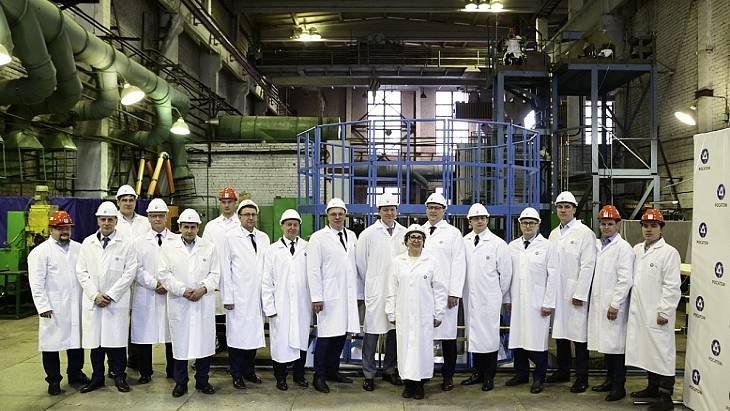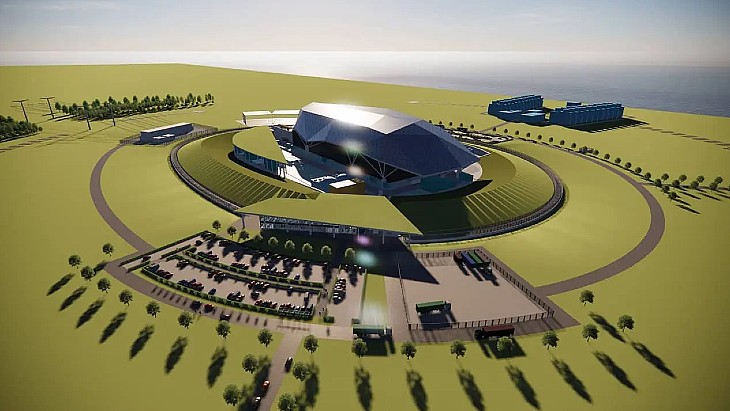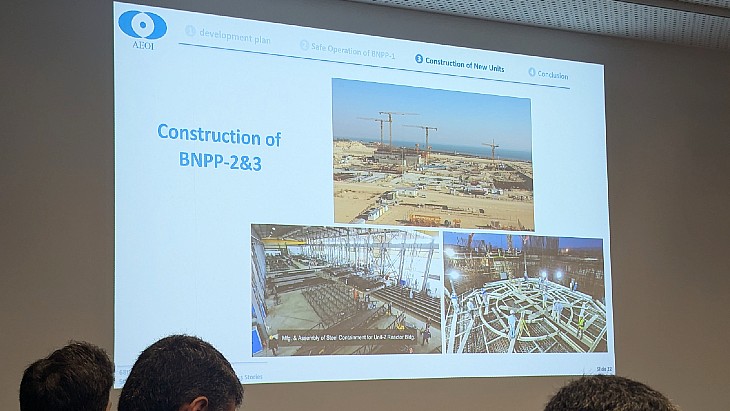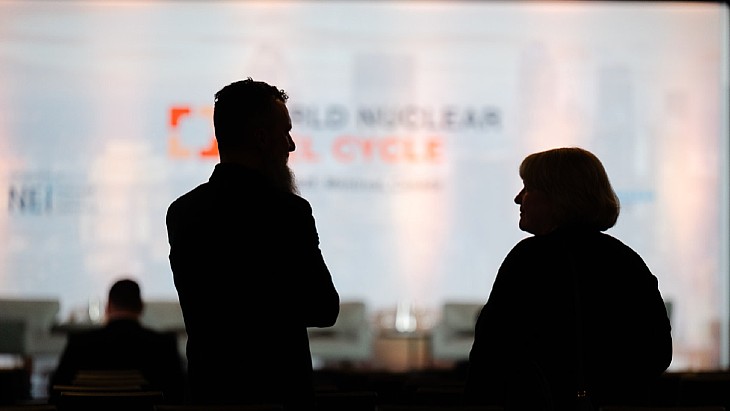Test assembly completed for Bolivia's research reactor

The pool-type 200 kW pressurised water research reactor, developed by Russia's Research Institute of Atomic Reactors, is designed to have a service life of 50 years.
During the test, the assembly process of the main equipment was reproduced, including the installation of reflector blocks, mock-ups and simulators of fuel assemblies, plus control and protection elements as well as kit to ensure quality control of the manufactured elements.
To mark the manufacturer's test assembly of the reactor, a ceremony was held, attended by representatives of Rosatom and the government of the Ulyanovsk region, Bolivian ambassador Maria Luisa Ramos Ursagaste and, via videolink, Jerges Mercado Suárez, President of the Chamber of Deputies in Bolivia's National Congress.
The research reactor is part of a Russian-Bolivian project to create a nuclear research and technology centre at El Alto, at an altitude of 4500 metres. The Cyclotron Preclinical Radiopharmacy Complex is already up and running, and will produce a line of pharmaceuticals to provide the necessary supplies for the network of Bolivian nuclear medicine centres, intended to allow Bolivians to get quicker and higher quality diagnosis and treatment without having to travel abroad.
The wider project will bring together advanced nuclear technologies for healthcare, agriculture and other industries. The first two stages of construction - the CRPC and the Multipurpose Irradiation Centre - have been completed, with construction and installation work continuing on the research reactor complex.
Rosatom says the research reactor "will make it possible to produce radioisotopes for research in the field of agriculture, ecology - to determine the level of environmental pollution, hydrogeology - to study groundwater and surface water. Its facilities will also provide conditions for training students in nuclear specialties".
It will also enable Bolivian specialists to determine "the origin and age of biological samples and artifacts, develop programmes for the efficient use of natural resources and continuous monitoring of the state of the environment".
Kirill Komarov, Rosatom deputy director general, said the entire project should be completed in 2025, saying: "In the very near future, the reactor will go to Bolivia, and already this year we will begin its installation at the centre site. Quite recently, the cyclotron complex began its work, which significantly expanded the possibilities of Bolivian health care, providing it with the most modern radiopharmaceuticals. It is good to see that the project is already benefiting Bolivian citizens and we will actively continue its implementation."
Alexander Tuzov, director of the research institute, said: "This project, which is so important for domestic and Bolivian nuclear science and technology, involved specialists from several departments of the institute, including employees of the reactor research complex, the design and construction department, and the experimental service."
_92619.jpg)

_84504.jpg)







_50521.jpg)

